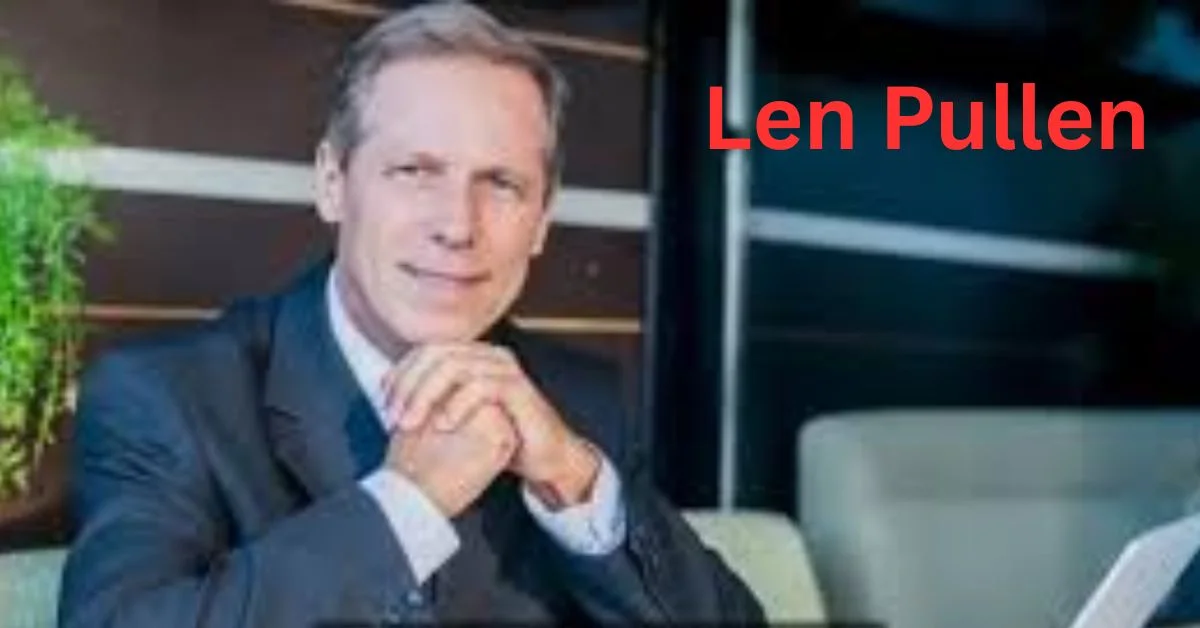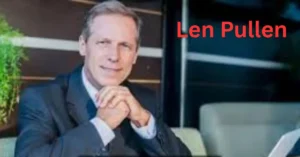He never courted the limelight. His name rarely headlined conferences, nor did it decorate branded merchandise. Yet in boardrooms, policy circles, and community centers, the mention of Len Pullen evokes quiet respect. His was a life built not on grand gestures but deliberate actions—a mosaic of decisions that would ripple through industries, education, and civic thought.
In an age where personal branding and viral moments dominate perception, Len Pullen remained steadfastly analog in a digital world, operating from principle, vision, and patience. This is not a story of fame—it’s a story of substance.
Chapter 1: Early Life in Context
Humble Beginnings
Born in the late 1940s in a modest township on the eastern seaboard, Len Pullen came of age during a period of economic transition and cultural fracture. His upbringing was marked by scarcity but also stability—his parents, both schoolteachers, imbued in him a reverence for discipline and dialogue.
Unlike his peers drawn to the postwar manufacturing boom, young Len gravitated toward public libraries and backroom conversations. At 15, he was already reading John Dewey and Rachel Carson. By 17, he was writing letters to local councilmembers questioning zoning policies and environmental codes.
Chapter 2: The Quiet Scholar
An Education that Shaped More than a Resume
Len Pullen attended a small liberal arts college in New England, majoring in political science with a minor in philosophy. While classmates pursued activism in louder ways, Len Pullen built coalitions behind closed doors—drafting white papers, helping restructure the student union constitution, and launching a now-longstanding community engagement program connecting students with underserved rural areas.
Post-graduation, he took what many saw as an unconventional route: a job at a failing local newspaper. He wrote not for prestige but for proximity—to understand how institutions told their stories and which stories they ignored.
Chapter 3: The Policy Whisperer
Influence Without a Podium
By the late 1970s, Len Pullen had transitioned into public administration. Over the next four decades, he would serve in an array of advisory and operational roles—most notably as a regional development officer, a state-level transportation strategist, and an informal consultant to education boards across three states.
His talent wasn’t in headlines—it was in systems thinking.
He once said:
“I don’t want to lead the meeting. I want to be the reason it ends better than it began.”
Colleagues describe him as unshakable in tense negotiations, always armed with data and empathy. His reports weren’t flashy, but they changed funding trajectories, transportation models, and even food policy in school districts.
Chapter 4: Innovation through Restraint
Saying No When Everyone Else Said Yes
In the early 2000s, during the tech boom, Pullen was approached by multiple startups to join advisory boards or help position products for public-sector application. He declined most.
“Technology isn’t the future. Decisions are.”
Instead, he worked with municipal IT departments to improve legacy systems—email security for public schools, digitization of property records, equitable broadband infrastructure for low-income zones.
He believed in small, cumulative modernization rather than disruptive upheaval. His skepticism wasn’t about progress; it was about responsibility.
Chapter 5: The Mentor Without a Platform
Shaping Generations Quietly
Perhaps Pullen’s most enduring legacy lies in the people he mentored. Over his career, he deliberately chose to remain in middle-tier roles, not out of lack of ambition, but in order to remain accessible.
Former mentees include:
- A nonprofit CEO working on food justice
- A federal transportation consultant
- A community college president
- Multiple elected officials who cite him as foundational
He offered feedback not through performance reviews, but through midnight emails, annotated articles, handwritten notes left on desks.
He believed leadership was measured not by how many followed, but how many outgrew the need to.
Chapter 6: The Personal Ethos
Family, Ritual, and Solitude
Married for over 40 years, Len Pullen often credited his partner, Elise, with being “the voice behind the silence.” Friends recall their home being filled with books, jazz, and Sunday potlucks attended by everyone from social workers to city planners.
He kept no social media, rarely gave interviews, and preferred long walks to long dinners.
His idea of vacation? Visiting a municipal archive in a city he hadn’t yet explored.
Chapter 7: Recognizing What Matters
The Awards He Never Showed
Over time, Pullen received various recognitions—community awards, honorary degrees, citations from planning councils. Most are packed in a single wooden box in his study, alongside newspaper clippings, family photos, and annotated city budgets from 1983.
He once told a colleague:
“Awards don’t remember people. People remember people.”
And people do remember him. At retirement ceremonies, more people spoke about how he listened than what he did—which, ironically, was a lot more than most ever knew.
Chapter 8: Reflections in Retirement
Not Fading, Just Shifting
Since formally retiring in 2018, Pullen has declined most speaking engagements. Instead, he leads a volunteer-run initiative called “Rural Record,” which helps communities document local histories and build accessible civic archives.
He believes that stories are infrastructure.
Each month, he travels to a different town, spending three days gathering oral histories, digitizing old ledgers, and helping train local volunteers in archival best practices.
He publishes none of it under his own name.
Chapter 9: What We Learn From Len Pullen
Lessons in Modern Leadership
In today’s professional culture of instant metrics and performative productivity, Len Pullen’s life offers an alternative paradigm:
- Depth over visibility
- Influence through integrity
- Change as ecosystem, not spectacle
His path reminds us that not all legacies are loud, and not all revolutions are televised. Some are embedded in policy drafts, classroom curriculums, community zoning laws, and the quiet uplift of a mentee’s career.
Chapter 10: A Name Worth Remembering
Why Len Pullen Still Matters
In many ways, the informational age forgets figures like Len Pullen. But perhaps now, in a moment where credibility is currency and trust is scarce, his model becomes not just admirable—but essential.
He didn’t seek out virality or venture capital. He sought alignment—with values, with people, with outcomes.
So if you haven’t heard of Len Pullen, that’s by design.
But if you’ve ever benefited from a more inclusive zoning regulation, a clearer bus route, a better-funded school library—or even a thoughtful mentor who made time when no one else did—you may have felt his legacy.
For more information, click here.









